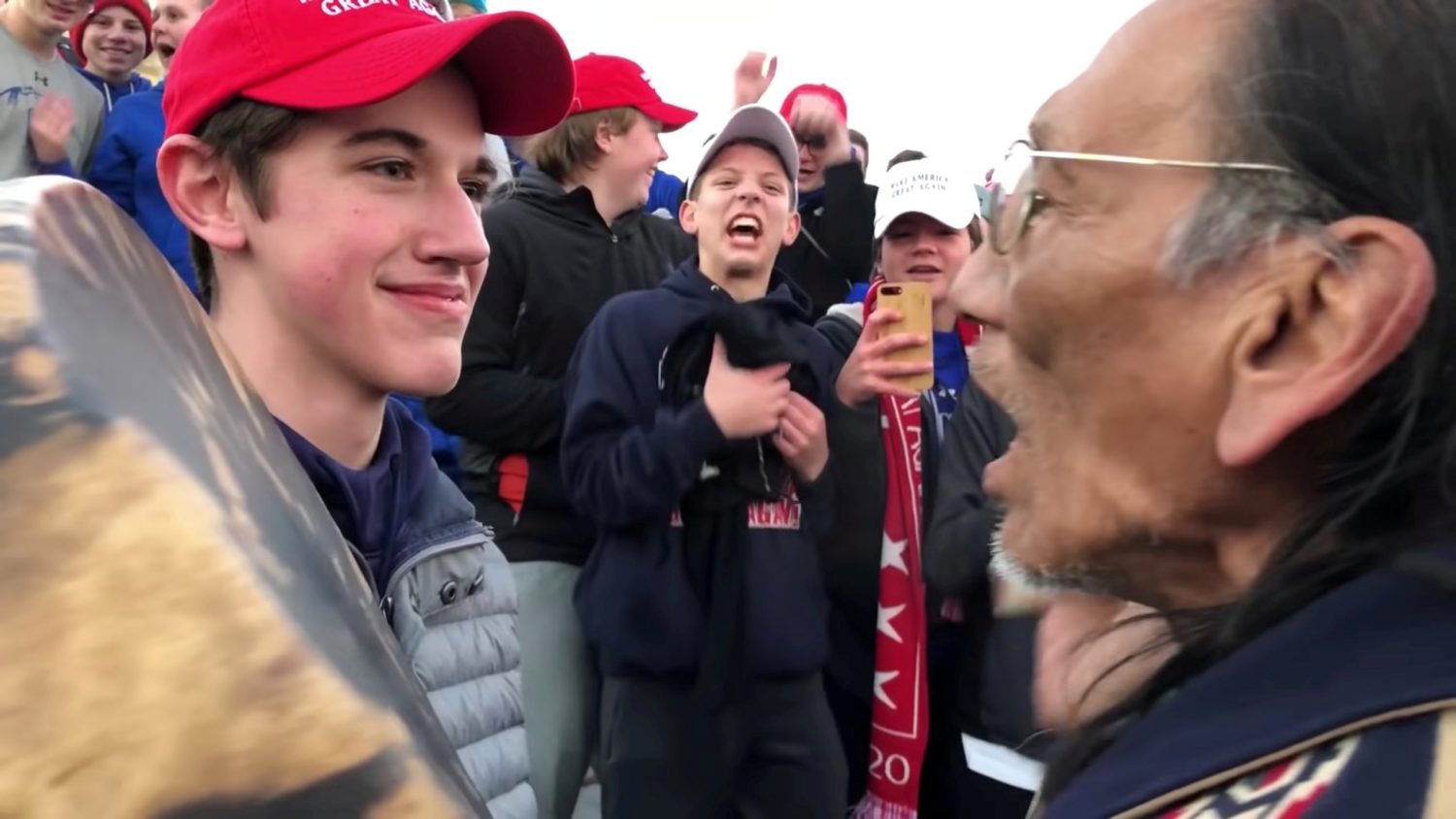
By Keith Coffman
(Reuters) – A Kentucky teenager sued CNN on Tuesday for defamation, saying the cable network falsely conveyed to viewers that he was the “face of an unruly hate mob” confronting a Native American activist at the Lincoln Memorial in Washington in January.
The lawsuit, filed on behalf of Covington Catholic High School student Nicholas Sandmann in federal court in Kentucky, seeks $275 million in compensatory and punitive damages over the videotaped incident in the nation’s capital.
Sandmann and other Covington Catholic students had been in Washington to attend a March for Life anti-abortion rally.
In photos and videos that went viral from the incident, Sandmann is seen standing face to face with Native American activist Nathan Phillips. Sandmann stares and smiles at Phillips while Phillips sings and plays his drum.
The footage sparked outrage on social media, with many viewers saying that Sandmann and a group of fellow students seen gathered around Phillips appeared to be mocking the activist.
The complaint said CNN, a division of Turner Broadcasting System Inc-owned Warner Media LLC, aired four “defamatory” broadcasts and nine online articles falsely accusing Sandmann, 16, and his classmates of “engaging in racist conduct”.
“The CNN accusations are totally and unequivocally false, and CNN would have known them to be untrue had it undertaken any reasonable efforts to verify their accuracy before publication,” the complaint said.
A CNN spokeswoman said the network declined to comment.
A private investigation firm commissioned by the Roman Catholic Diocese of Covington in Park Hills, Kentucky, to review the incident concluded last month that there was no evidence the students provoked a confrontation.
Instead, the report found that the teenagers were met at the Lincoln Memorial by offensive statements directed at them by several African-American protesters from a group known as the Black Hebrew Israelites.
According to this account, the students responded with permission from the teacher chaperones by shouting “school spirit” chants before Phillips waded into scene playing his drum.
The complaint said CNN exhibited a bias against President Donald Trump by focusing on Sandmann and other Covington students because they were wearing red caps emblazoned with the president’s “Make America Great Again” slogan.
Trump has a contentious relationship with CNN, frequently calling it “Fake News”.
Last month, Sandmann sued the Washington Post for $250 million over its reporting of the same incident.
The newspaper said in a statement that it would “mount a vigorous defense,’ and later published an “Editor’s Note” explaining how its coverage of the incident evolved as new information came to light.
(Reporting by Keith Coffman in Denver; Editing by Steve Gorman, Robert Birsel)






